Important Sustainability Issues (Materiality)
Material Issue 2 Expanding Dedication to Service to a diversity of consumers
Commitment
We will respond appropriately to changing senses of consumption behavior of consumers and maintain an environment in which consumers can look and choose the products and services that serve and satisfy a billion customers on earth.

The second aspect of “Dedication to Service (Oyakudachi)” is “breadth” in terms of how many consumers
can be satisfied.
As a means of dedicating ourselves to serving as many consumers as possible, we
will pursue both “depth” in the form of brand, communication and categories and “breadth” of
distribution and area as we aim to become a global company capable of continuing to create strong ties.
At Mandom, we will create new, unique value while keeping an eye on foreseen changes in our market environment and establish systems through which we can continue to provide that value to consumers through products, communication, and distribution as we aim to “use our ‘Only One’ strengths to provide Dedication to Service (Oyakudachi) to a billion people around the world.”
Related SDGs
Efforts
Efforts to expand our distribution network
Evolution and History of "Tancho Tique" ~ Traditional Product with 91-year History Crafting New Markets ~
Mandom launched Japan's first plant-based tique "Tancho Tique" in 1933, which swept over the market with its quality and lavender scent. By the following year it had become an extraordinary hit, claiming a 90% share of the market.
The success of Tancho Tique spread far beyond Japan, and led to the forming of a technical tie-up with Tancho Corporation in The Philippines in 1958, marking the start of local production of Tancho Tique. This factory went on to become the first overseas expansion in the cosmetics industry after the war, and represented a significant step forward for both Mandom and the industry as a whole.
Fast-forward to 2022, and social media was ablaze with celebrities embracing Tancho Tique to creates licked-back hairstyles dubbed the "Slick Back Bun."
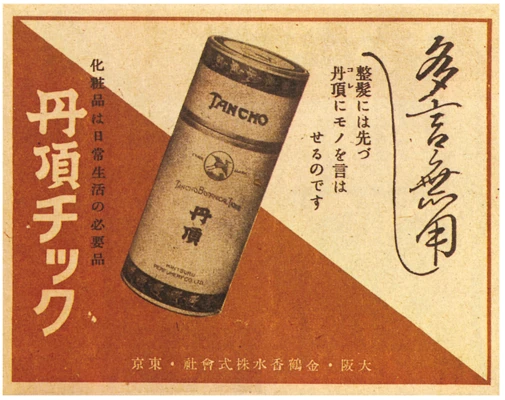
(excerpt from "Bungeishunju," 1941)
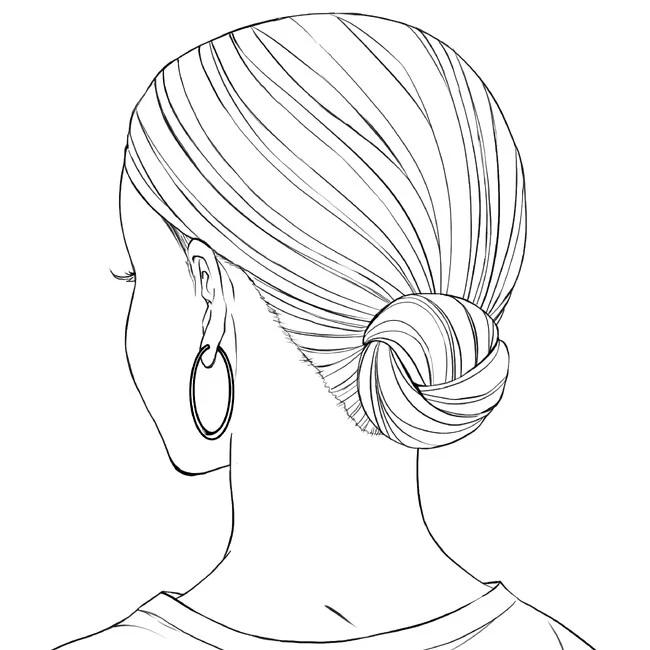
Mandom struggled to export existing products to America due to issues with raw ingredients, but there was potential for prolonged sales given the anticipated levels of demand. Yet we wanted to deliver products brimming with appeal to customers who showed signs of interest in our products, so we launched "Tancho Tique Cherry Blossom Scent" in America in November 2023.
The fragrance is based on the simple and elegant "Cherry Blossom Scent". With a high ratio of female users in America, we added cherry blossom styling to the traditional crane design and "丹頂" characters, with the content also made with a cherry blossom color for an adorable look. Other design aspects were also featured, including sizes specified in ounces.
We continue to aim provide new Oyakudachi (Dedication to Service) with Tancho Tique, 91 years after release.
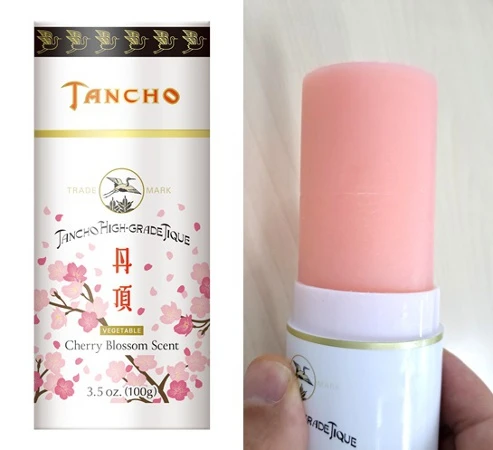
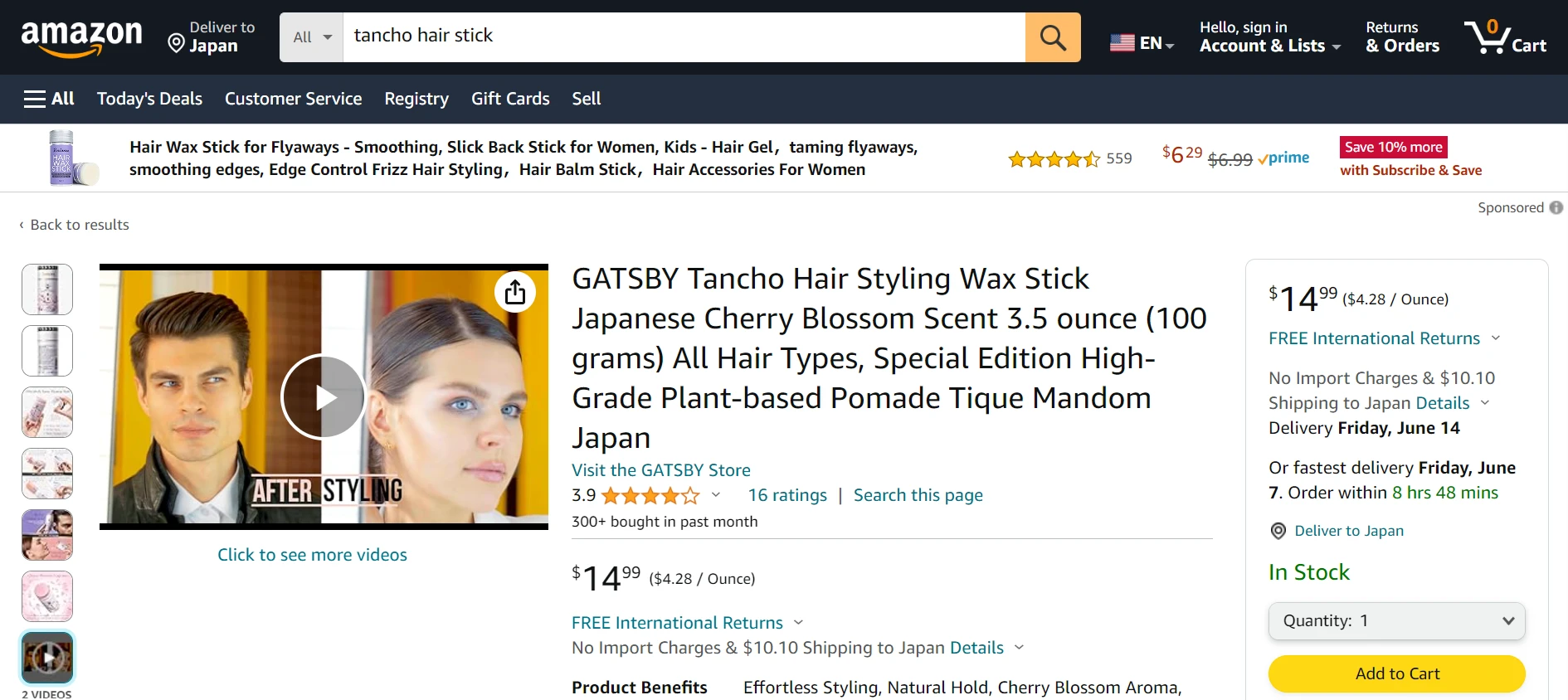
Dedication to service for low-income consumers in Indonesia
Product development with consumers, for consumers
Regardless of country, we undertake product development activities with consumers, for consumers that place constant consideration on contributing to the comfortable life of local consumers.This approach remains the same in Indonesia. As a result of accommodating the needs and wants of local consumers, PT Mandom Indonesia Tbk now retains the broadest product line-up within the Mandom Group.
In Japan, enlarging a 500 ml product that costs 100 yen into a 1000 ml product that costs 160 yen will be more receptive to consumers because it is seen as more cost effective. In Indonesia, however, a 250 ml version of this same product sold for 70 yen is more receptive to consumers due to the local preference for products that cost less upfront. In Indonesia, a double sachet water gloss (5 g each) sells for 1,300 rupiah, or approximately 13 Japanese yen (1 rupiah=0.0096 yen).
for example, The company is selling and marketing sachets of hair styling products for men such as Gatsby
Styling Pomade and Gatsby Water Gloss, and for women, a Two Way Cake refill that includes a makeup sponge
for use as is for the popular makeup brand in Indonesia, PIXY. These products have gained acceptance from a
wide range of consumers, including the BOP segment and those living in rural areas. Such products for the
BOP market are being produced in Indonesia not only for domestic consumption but also for export to the
Philippines, Mainland Southeast Asia, and as far away as Southwest Asia and Africa.
Such products are useful to local BOP consumers and will also help to expand the local cosmetics market and
distribution network.
BOP Business: Sustainable business carried out in developing countries that targets the base of the economic pyramid (BOP)-consumers, producers, retailers or combinations thereof.The BOP segment of the populace refers to the lowest level of the income/economic pyramid-people whose annual income is low and purchasing power parity is less than $3,000. This segment accounts for about 70% of the global population, or 4 billion people.
■Preference for product sizes

■Water gloss in different size variations

Strong distribution network
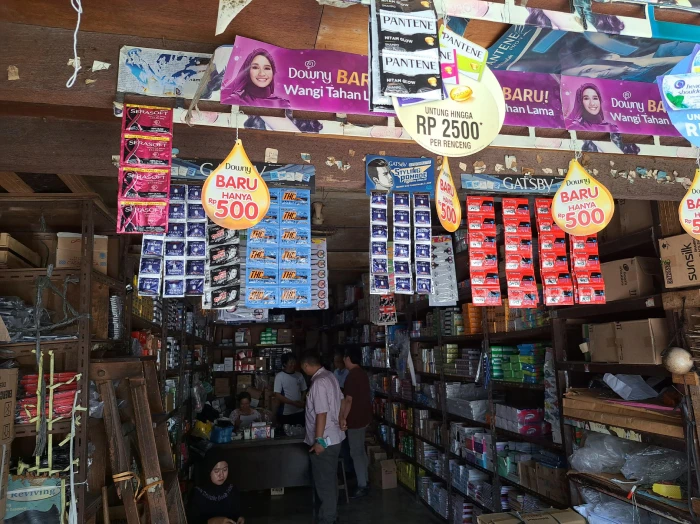
We have established a strong distribution network in Indonesia, an island nation comprised of over 15,000 islands. Although challenges exist to delivering products to these many islands, with the cooperation of our solid distributor partners we have been able to distribute our products to nearly every area of the country. Actually, the ratio of each island's population and sales to the entire country is nearly identical.
- Material Issue 1 Creating an easy-to-start grooming culture
- Material Issue 2 Expanding Dedication to Service to a diversity of consumers
- Material Issue 3 Realizing mutual growth of employees and the company
- Material Issue 4 Actions for sustainable global environment
- Material Issue 5 Sustainable procurement of raw materials
- Material Issue 6 Maintaining/enhancing the corporate base